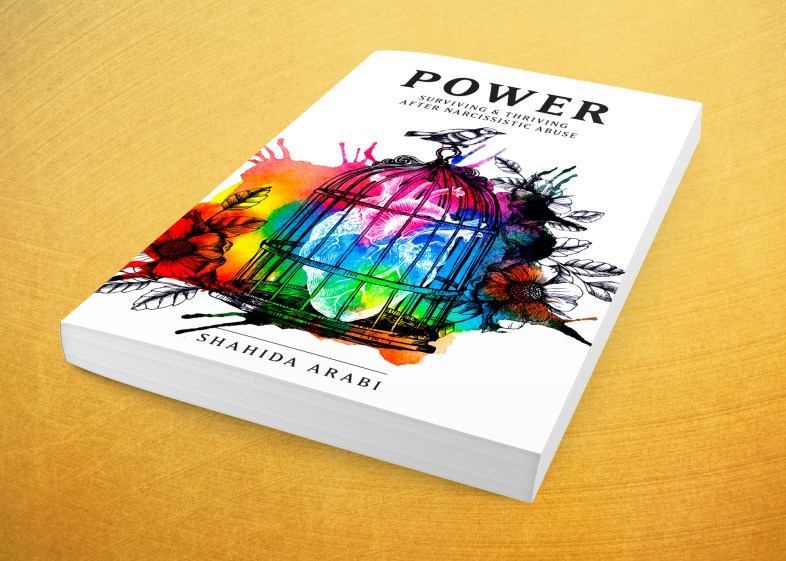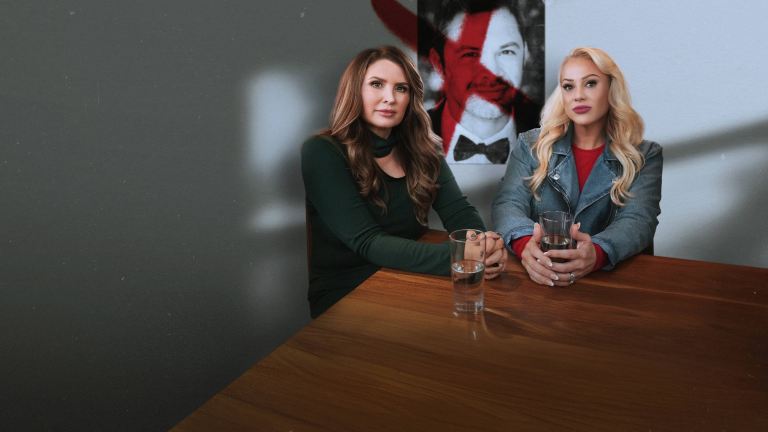
7 Things People Don’t Realize You’re Doing Because You’re The Child Of A Narcissistic Parent
We forget to give ourselves permission to dislike someone, to address conflict, to confront issues, or even just to acknowledge when someone has reached epic levels of douchebaggery.
Being the child of narcissistic parents is one of the most heartbreaking and traumatizing things a person can go through. Not only are you required to survive a war zone in childhood, you are left with life-long consequences that extend far into adulthood. Here are seven things you might be doing as a result:
1. Apologizing more than you have to, even if no apology is needed.
Children of narcissistic parents tend to become fluent in saying “sorry” – even for just their very existence. It’s because they’ve been taught by their parents that they are a burden. This is especially true for female victims who are also socialized to be people-pleasing and accommodating. It takes time to unlearn this behavior and learn to only apologize for actual transgressions rather than any perceived burdensomeness.
When evaluating whether to apologize, ask yourself: Was I the cause of this in any way? If not, replace your “sorry” with “That’s unfortunate” instead. You could be “sorry” that the circumstances are what they are, but if you are not personally responsible, you have no reason to apologize. And if the event in question was the fault of someone else, let them carry the burden – lift the weight off your shoulders completely.
Remember that there are many people in this world who don’t even have the courtesy to apologize to you for their wrongdoings – so the last thing you want to do is overextend yourself by apologizing for things you didn’t even do wrong.
2. Hesitating to say no, because it might displease others.
As a child, you were conditioned to obey your toxic parents even at the expense of your own welfare and basic needs. You were punished and abused when you did refuse to comply to their demands. Saying “yes” was a vital part of your survival as a helpless child who did all he or she could to ensure that their parent did not abandon them.
Now, as an adult, saying no is a part of having healthy boundaries. However, it can feel absolutely intimidating at first. The key is to check in with yourself about why you’re fearful of saying no, preparing for any potential consequences, and allowing yourself to feel the discomfort – yet still sticking to what you know to be true.
Ask yourself on a daily basis, “Am I doing this to please someone else, or because I really want to do this?” It’s okay to evaluate whether someone has invested in you in the way they want you to reciprocate and go from there. If you’re the only one giving while they’re taking, it’s an unequal relationship and there’s bound to be a power imbalance. There are some things you may not be able to avoid doing, but this is still a healthy start to reconnecting to your authentic desires.
3. Doubting your own perceptions and second-guessing your intuition.
Although we’re highly sensitive and intuitive, we’ve also been gaslighted most of our lives by abusers into thinking otherwise. We tend to underestimate our own emotions and instincts while overvaluing the comfort of others. This can lead us into some very dangerous situations like abusive friendships, relationships, work environments, or shady business deals.
There are some simple questions you can start asking yourself if you want to understand whether the problem is you or them. Does everyone make you feel this uncomfortable, or is it mainly this person who sets off the inner “smoke alarm”? Have you noticed similar toxic behaviors in this person as you’ve experienced with your parents? Would you ever treat anyone the way this person is treating you? And if not, would you feel uncomfortable witnessing them treating someone else in a similar manner?
These questions can help you to reconnect with your basic rights, to see the situation from multiple perspectives. For example, often as children of narcissists we tend to prioritize the suffering of others over our own, so the last question helps to distance ourselves and recognize when mistreatment is occurring because we see how awful the situation would feel to someone else other than just ourselves. It makes us realize that it’s okay to verify when someone is being a straight up asshole – and that it has nothing to do with you and everything to do with them as a human being.
4. Checking in constantly about how someone else feels about you without tending to how you really feel about the person.
Since you were raised in a chaotic, unstable environment, it makes sense that you’re fearful of situations where you’re likely to encounter the possibility of change. As a result, you’re always on the lookout as to whether something has shifted or changed. You’re always questioning the status of your most intimate relationships. You don’t have a firm grasp on how others feel about you, so, as a result, you try to take back control by micromanaging your relationships.
The healthier route would be to step back and reevaluate whether the people in your life you’re so desperately attempting to cling onto even deserve a seat at your table. Do they deserve your energy and efforts? Sometimes, we’re so consumed with how others perceive us that we forget to honor how we feel about them.
We forget to give ourselves permission to dislike someone, to address conflict, to confront, or even just to acknowledge when someone has reached epic levels of douchebaggery. A fun way to counter this people-pleasing behavior is to create a mantra for yourself: “Are they a douche?” If so, so be it! Acknowledge the reality rather than bending over backwards trying to rework your perception of toxic people into something more socially acceptable. Some people really are just horrible people, and that’s okay – that doesn’t mean you have to tolerate them.
And even if they are trustworthy friends or partners, they are not the arbiter of our self-worth or your right to be loved. It can be terrifying to consider for someone raised to be dependent on the validation of others, but we can and will survive with or without them or their approval. Some people rightfully need to be cut out of our lives, while others will provide a source of safety and support. They key is discerning the difference.
5. Picking up on micro-signals of abandonment or displeasure.
Children of narcissists become hyper-aware and attuned to microexpressions, gestures, changes in tone of voice that signal abandonment or displeasure. They had to become aware of these to survive and navigate sudden changes in their environment. They needed to know when their parent’s next rage attack was about to begin or what they could “do” to avoid being punished.
As an adult, you’re highly intuitive about the motives of others as well as their true emotions. You catch onto subtle shifts with incredible ease. This gift of intuition can be used wisely to navigate social interactions, but it can also be overwhelming. Sometimes, this hyperfocus detracts from owning your agency in detaching from the person and instead causes you to become obsessed with pleasing them. Rather than focusing too much on these, try taking note of such changes without becoming enmeshed in the other person’s feelings.
6. Taking your time to trust.
As a child you were violated, emotionally or even physically abused. Your trust was taken advantage of, time and time again. It is no wonder you have a hard time letting people in. That doesn’t make you wrong – this is simply a testament to the trauma of your experience.
Want more writing about the narcissist? Read the book POWER: Surviving and Thriving After Narcissistic Abuse by Shahida Arabi.

In many cases, slowing down and taking the time to trust is a good thing – it means you are aware that there are emotional predators who could take advantage of your kindness. You might take months to disclose personal information (or seconds, if you have more porous boundaries where you’re oversharing). You might feel hypervigilant when you notice red flags. It’s okay to know that trust has to be earned.
There are trustworthy people out there, you just have to be willing to see people for who they truly are, not who you want them to be or who they pretend to be.
7. Having a problematic relationship with uncomfortable emotions like pain and rage: either repressing them completely or allowing them to consume you.
Children of narcissists are chronically emotionally invalidated from a very early age. They are conditioned to believe that their emotions don’t matter or that their emotions make them defective. They learn to suppress their anger and stifle their hurt. Owning their “dark side” (or what they perceive to be dark) can be frightening.
As a result, they may bury their true emotions for a lifetime, eventually “snap” or become easily overwhelmed with bottled up emotions because they never learned how to healthily process, channel and heal these emotions from the onset. Children of narcissists can be straight up scary when their real emotions are finally allowed to come to the surface – I say this in half-jest, knowing how overwhelming it can be when you were raised to feel like having emotions were pathological. Developing a healthier relationship to your emotions – and a better outlet for them (such as writing, meditating, counseling, exercising) can be life-changing.
Learning to identify and validate all of your emotions – without necessarily acting maladaptively on them – can be vital to exercising your basic human rights and implementing your boundaries. It’s important to learn how to constructively stand up for yourself – and it is especially important as the child of a narcissist, when nobody stood up for you.
Don’t give up hope. Despite their struggles as adults, children of narcissists have tremendous resilience and all the more reason to pave a brighter future for themselves and future generations. ![]()
Shahida Arabi is the author of Power: Surviving and Thriving After Narcissistic Abuse and Healing the Adult Children of Narcissists: The Invisible War Zone.











